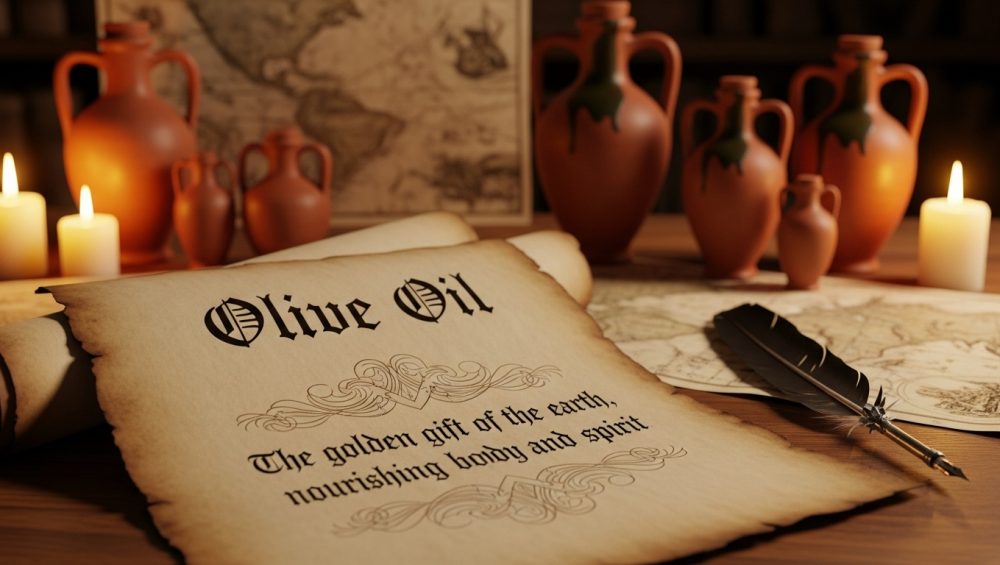The history of olive oil is not only found in kitchens but also in the earliest written records of humanity. This precious liquid appears in the oldest texts as an economic asset, a sacred substance, a healing elixir, and even a diplomatic gift. A gift from the soil, olive oil has been processed by human hands and immortalized by human pens. So, in which documents and civilizations does olive oil make its mark? Tracing olive oil is, in essence, touching the history of civilizations themselves.
The First Records on Clay Tablets
The earliest known written records of olive oil are found in cuneiform clay tablets from Mesopotamian civilizations. During the Sumerian and Akkadian periods, olive oil held a significant place in both daily life and temple economies. These tablets contain detailed information about the production, distribution, and even taxation of olive oil. Thus, these lines describe not just a food but a product fundamental to trade and organization.
Ancient Egypt: Olive Oil in Papyrus
In Ancient Egypt, olive oil was indispensable for both cosmetics and religious rituals. Medical texts like the Ebers Papyrus, dated to the 16th century BCE, include recipes that use olive oil in various mixtures. These documents show that olive oil was valued not only as a nutrient but also as a healing substance. Oil containers found in pharaohs’ tombs further prove that it was considered a treasure essential even in the afterlife.
The Poetry of Oil in Homer’s Lines
Homer, one of the greatest figures in Ancient Greek literature, portrays olive oil not just as a food but as a way of life. In the Iliad and Odyssey, heroes cleanse their bodies with olive oil and offer it to the gods. These lines reveal that olive oil played a central role in Ancient Greek society, not only in the kitchen but also in sports, hygiene, and religious practices.
Economic Power in Roman Archives
In documents from the Roman Empire, olive oil is recorded as a trade commodity. Notably, Pliny the Elder, in his work Naturalis Historia, compares olive oils from different regions, describing which areas produced superior quality. These records demonstrate that olive oil was a strategically important product in the economic structure of the Roman Empire.
Olive Oil in Ottoman Documents
The journey of olive oil in written history continues into the Ottoman period. Land registries, endowment records, and customs documents frequently mention the existence of olive groves and olive oil trade. Olive oil was not only a production item but also a fundamental component of social welfare through charitable endowments.
A Journey from Script to Table
Olive oil is not just a journey from soil to table; it is also a hero carried from tablets to books, from papyrus to archives. Its presence in historical documents shows that it is more than a food—it is a bridge between civilizations and a carrier of written culture. When you open a bottle of olive oil today, you connect with lines written thousands of years ago. Every drop carries both the memory of the soil and the shared history of humanity.

